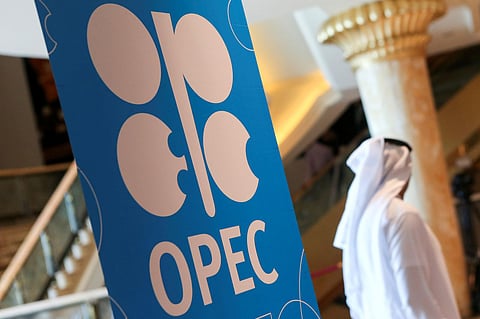

Saudi Arabia expects its revenue to fall in 2020 as low oil prices and an OPEC+ deal to further deepen output cuts hit its crude oil sales.
Last week, Saudi Arabia announced its 2020 budget, which sees a revenue of SAR833bn against a total expenditure of SAR1.02tn.
While, the country's 2019 revenue estimate was SAR917bn.
According to Riyadh-based Jadwa Investment, an oil price of $60 per barrel and crude oil production of 9.8 million bpd in 2020 are consistent with Saudi Arabia's oil revenue projections of SAR513bn, which is down 14% year-on-year.
The International Monetary Fund (IMF) had projected a breakeven price of $80 to $85 a barrel for 2019 and $85 to $87 for 2018.
Analysts at Jadwa Investment expect "a more subdued outlook on oil markets".
This outlook to be reflected in overall government revenue for 2020 and subsequent years.
Oil prices are down 13% since touching the $75 a barrel mark in April this year.
On December 5, the OPEC+ surprised financial markets with a deeper-than-expected cut in oil supply, triggering a jump in prices.
"One thing we can say at this stage is that the combination of a return to austerity and lower oil output will depress GDP growth," London-based consultancy Capital Economics wrote in a note on Saudi Arabia's latest budget.
The new squeeze on exports removes another 500,000 barrels a day from world markets from the beginning of January.
Saudi Arabia pledged to continue cutting 400,000 barrels a day if other producers remained committed to their part of the agreement.
A prolonged trade war between the United States and China has also hurt the demand for billions of dollars' worth of goods and introduced high levels of volatility in global financial markets.
While OPEC-led cuts have provided temporary relief to oil markets, it may not have a lasting impact, the International Energy Agency's outlook shows.
The Paris-based agency said global crude oil inventories could rise despite the deal.
"Despite the additional curbs and a reduction in our forecast of 2020 non-OPEC supply growth to 2.1 million bpd, global oil inventories could build by 700,000 bpd in Q1 (first quarter) 2020," it said in a report.
While troubles in the oil markets mount, Saudi Arabia will gain from parts of the economy that are not related to the fossil fuel.
According to the budget, non-oil revenue to reach SAR320bn in 2020, up 1.6% from an expected SAR315bn in 2019.
"The surge in non-oil revenue reflects the government's ongoing efforts to diversify its income streams and reduce dependency on oil," KPMG said in a recent report.
The Kingdom, which is in the middle of the Vision 2030 economic reform plan, successfully listed Saudi Aramco on its stock exchange on December 11.
The $25.6bn in proceeds from the record-breaking IPO are expected to be used by the country's sovereign wealth fund to make investments in the economy.
Analysts have speculated that the funds could also fund the Kingdom's deficit, estimated at SAR187bn for 2020.
"The government announced a return to austerity … but the Aramco proceeds could be used to soften the blow for the economy," said James Swanston from Capital Economics.
